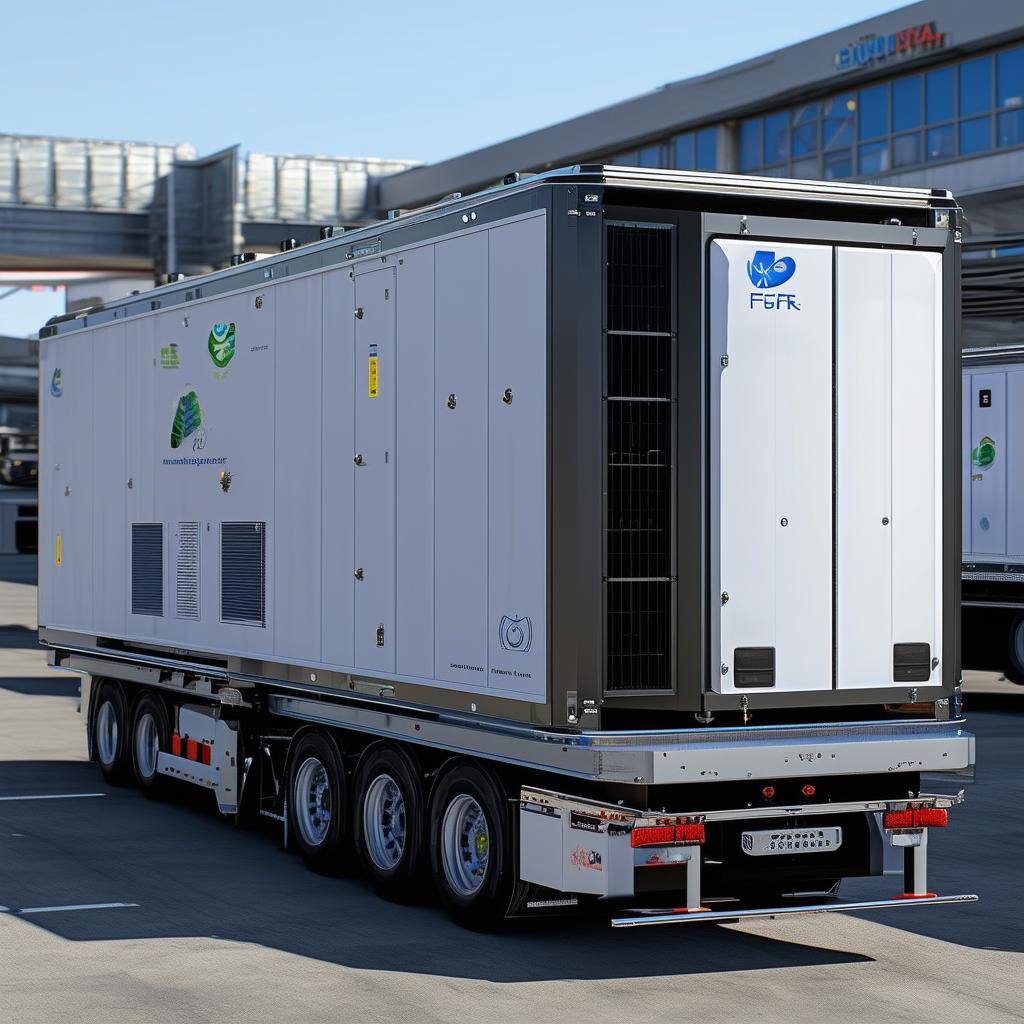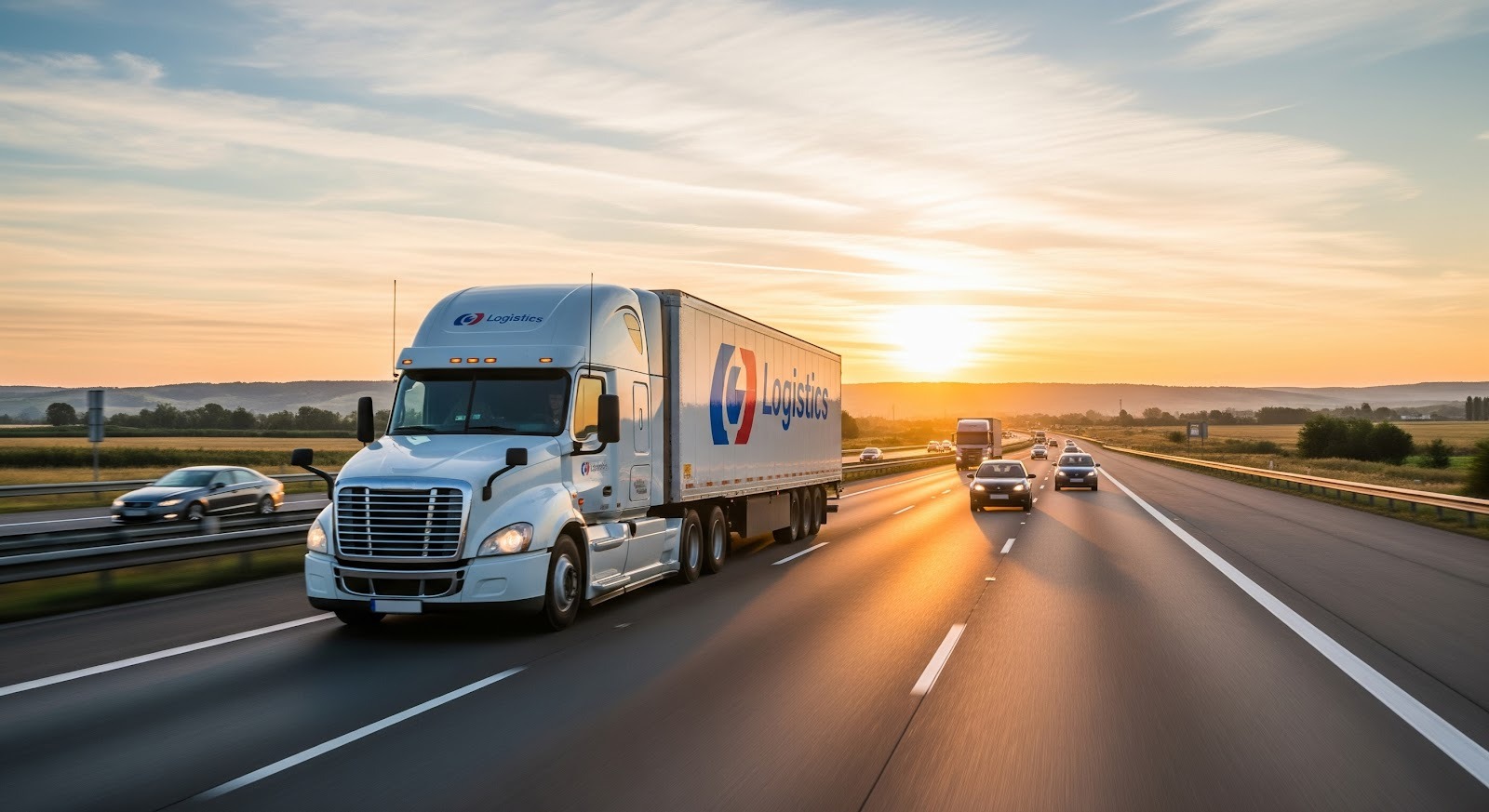Commercial Fleet Management: Strategies, Tools & Tips
Commercial fleet management plays a vital role in keeping businesses running smoothly, especially in industries like transportation, logistics, and...
Keep an eye on the road
Simplify your driver's routine
For efficient decision making
Ensure the compliance of your fleet
Simplify the daily life of your drivers
Maximize the value of your data
Unparalleled monitoring of your assets
The friendly competition that pays off
Planning powered by data
Exceed your customers' expectations
Provide better service to your users
Maximize the satisfaction of your citizens
Simplify your daily life on the construction site
Facilitate the electrification of your fleet
Our experts meet your needs
Easily meet the standards
Improve the safety of your drivers
Protect your data and your fleet
2 min read
Patrick Vallerand
Oct 25, 2024 1:56:05 PM

Refrigerated trailers have recently attracted a great deal of technological interest. Temperature management during the transport of sensitive goods is a crucial issue for companies, especially with increasingly stringent health and safety regulations. Significant risks exist if this management is not precise and reliable, but fortunately, manufacturers are making increasingly high-performance tools available to guarantee this reliability.
The North American Council for Freight Efficiency (NACFE) has published a comprehensive report on low-carbon refrigeration unit technologies. It's a fascinating overview of current technological solutions, and it's not just about refrigeration: innovations like electric power take-offs (ePTOs) are also paving the way for new ways of operating.
Today's refrigeration units, known as TRUs (Transport Refrigeration Units), generally use a diesel-powered internal combustion engine. This engine drives a compressor which maintains a stable temperature in the trailer through a compression-vaporization cycle. Although TRUs are reliable and widely used, they produce significant greenhouse gas (GHG) emissions and generate noise pollution, particularly in urban areas.
With a view to reducing emissions and modernizing the sector, several technologies are currently available or under development for TRUs:
1. Electric refrigeration units (eTRUs):
2. Hybrid configurations:
3. Generator axles (eAxles):
4. Hydrogen refrigeration:
5. Cold plates and solar panels:
eTRUs offer a number of advantages:
However, certain challenges remain:
Another promising development is electric power take-offs (ePTOs), which enable auxiliary equipment such as eTRUs to be powered directly from the vehicle's battery. ePTOs are not limited to refrigeration units; they can also be used for bucket trucks, tankers or other vehicles requiring PTOs. By eliminating the need to run the engine to power such equipment, ePTOs reduce not only fuel consumption, but also mechanical wear and tear, thereby cutting maintenance costs.
eTRUs and other available technologies represent a necessary evolution in the refrigerated transport sector, helping to reduce GHG emissions and improve energy efficiency. Although obstacles such as initial cost and lack of recharging infrastructure remain, the long-term benefits, particularly in terms of reduced operating costs and compliance with environmental regulations, make them a promising solution.
These innovations, combined with technologies such as ePTO, enable transport companies to begin their transition to a more sustainable future, while optimizing their operations and reducing their carbon footprint.

Commercial fleet management plays a vital role in keeping businesses running smoothly, especially in industries like transportation, logistics, and...

In fleet management, fleet compliance services play a much bigger role than just checking a box. They’re about keeping your drivers safe, your...

Trucking has always come with its fair share of challenges, from road safety and liability issues to managing fleet efficiency. As the industry...